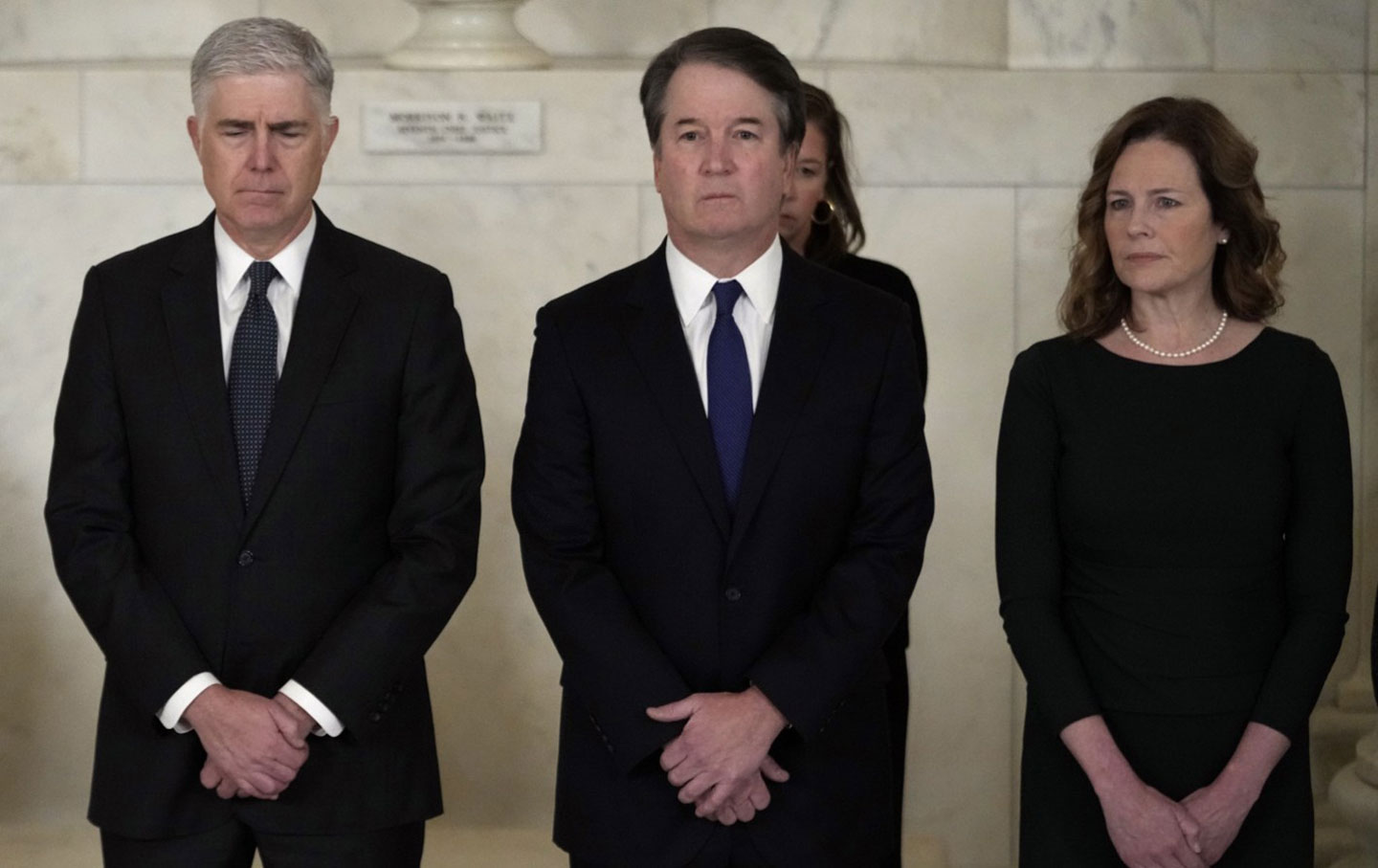During a major hearing this week, the conservative justices made clear they’re about to gut the federal government’s power to regulate—and take that power for themselves.
The Supreme Court heard two consolidated cases yesterday that could reshape the legal landscape and, with them, the country. The cases take on Chevron deference—the idea that courts should defer to executive agencies when applying regulations passed by Congress. They’re the most important cases about democracy on the court’s docket this year, and I say that knowing full well that the court is also set to decide whether a raving, orange criminal can run again for president, and whether former presidents are immune from prosecution for their crimes in the first place.
That’s because what conservatives on the court are quietly trying to do is pull off the biggest judicial power grab since 1803, when it elevated itself to be the final arbiter of the Constitution in Marbury v. Madison. They’re trying to place their unelected, unaccountable policy preferences ahead of the laws made by the elected members of Congress or rules instituted by the president. If conservatives get their way, elections won’t really matter, because courts will be able to limit the scope of congressional regulation and the ability of presidents to enforce those regulations effectively. And the dumbest justice of all, alleged attempted rapist Brett Kavanaugh, basically said so during oral arguments.
I’m contractually obligated to tell you that the cases were technically about fees that fisheries are required to pay to federal observers. But all the justices talked about was Chevron deference. Only Justice Sonia Sotomayor even bothered to mention the fish, three hours and 20 minutes into a three-and-a-half-hour hearing.



But their decision won’t fix that. It’ll just make it way worse.
What pre-Chevron rulings demonstrate a court that not deferring to an agency’s interpretation of the law is a problem?
“There’s no legislation to describe this exact situation. So no enforcement is possible until a judgement is made to decide what needs enforcement.” If there’s any give, the historically glacial judicial system must make a decision. Allowing companies to stomp all over everything, with little to no oversight. The only way to stop them is to sue and get a judge to decide. A process that traditionally favors the wealthy and well connected. And it allows for obvious transgressions to go until it rises to the ability to legislate against.
It’s a decision decided to rob the legislation of any leway to the executive. It’s blatant theft of the legislature’s ability to delegate. Things change quickly and those entrusted to actually do the work of enforcement do need give, but with proper oversight and transparency.